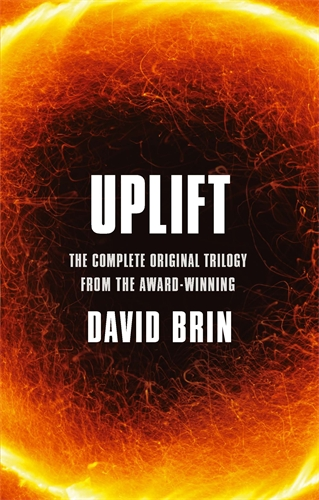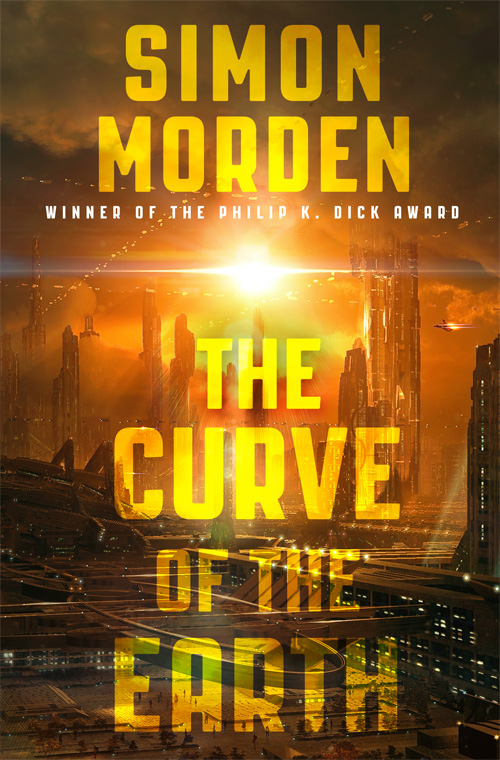 This week we’ve released UPLIFT (UK | ANZ), an omnibus edition of the first three award-winning Uplift books. It’s one of the most highly regarded classic science fiction series ever written. And it’s no surprise – because I can’t help but seeing signs everywhere that David Brin seems to get things so very right . . .
This week we’ve released UPLIFT (UK | ANZ), an omnibus edition of the first three award-winning Uplift books. It’s one of the most highly regarded classic science fiction series ever written. And it’s no surprise – because I can’t help but seeing signs everywhere that David Brin seems to get things so very right . . .
In the Uplift universe, humans have the technology to enhance the intelligence of other species – such as dolphins and apes – and they have raised these animals to our own level of consciousness. In fact, in these books no species has ever reached a level of sentience without being genetically “uplifted” by another race. But humans are the only ones who have seemingly never been helped out in this way . . .
This book raises some very interesting questions. Why does humanity seem to be the only species on Earth to have broken through what you might call a “glass ceiling” of sentience? What makes us so different to all the other species? And if we could genetically “uplift” other species – should we?
This question is much more pertinent now than you might think.
Recently, as reported by the New York Times, scientists have been experimenting with increasing the intelligence of monkeys by using brain implants. Granted, the research is aimed at helping people who’ve had their brain damaged through dementia, strokes or injury – rather than trying to help out the little furry dude involved. And for the moment, it’s just a case of the monkey being able to match up some objects and pictures a little better than usual – rather than hold a conversation about the meaning of life and the universe.
But the question arises – how long will it be until we really can raise an animal’s intelligence level to that of a human being?
Perhaps not that long, according to an article from the University of Edinburgh. It claims that a new gene has been discovered that might have played a crucial role in our development towards using tools and language. This gene is unique to humans, and seems to have developed after we evolved from apes. What’s more – it seems to have come from nowhere. It emerged fully-formed, over an incredibly brief period of time, from DNA thought to be “non-coding”, or else termed “junk DNA”. (David Brin asks, of course – might it have been “donated”?)
The very isolation of this gene, which brings us a step closer towards working out what makes us human, could also bring us closer to being able to artificially create it within other species. And if we can do this – what might these new, more intelligent animals be like? And what could we learn about the world and our place within it? But what risks might we also take by doing so? Planet of the Apes, anyone?
 If this question interests you as much as it does me, check out David Brin’s Hugo, Locus and Nebula award-winning UPLIFT (UK | ANZ), an omnibus containing SUNDIVER, STARTIDE RISING and THE UPLIFT WAR – out now.
If this question interests you as much as it does me, check out David Brin’s Hugo, Locus and Nebula award-winning UPLIFT (UK | ANZ), an omnibus containing SUNDIVER, STARTIDE RISING and THE UPLIFT WAR – out now.
And don’t forget that in January we’ll also be releasing EXILES (UK | ANZ), an omnibus containing the three Uplift Storm novels BRIGHTNESS REEF, INFINITY’S SHORE and HEAVEN’S REACH.
And if you’re really keen, check out this awesome Uplift merchandise. A great Christmas present for a nerd near you!















 Coming up in March is something we’ve all been waiting for: a new novel in the mind-blowing
Coming up in March is something we’ve all been waiting for: a new novel in the mind-blowing 















